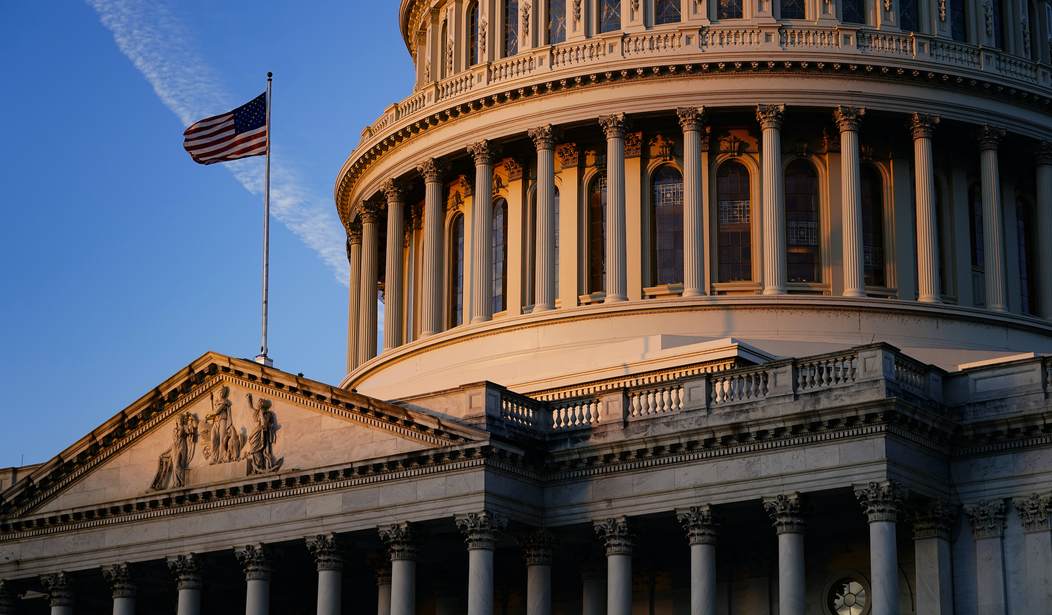On Thursday afternoon, President Joe Biden signed S.J. Res. 33, raising the the debt ceiling by another $2.5 trillion. As a result, the United States will now avoid defaulting until at least 2023. Treasury Secretary Janet Yellen was a particularly vocal proponent of raising the debt ceiling. The national debt is currently over $29 trillion.
Today, I signed a bill raising our debt ceiling. Members of both parties came together to ensure that the federal government doesn’t default on past debts. Defaulting would be a catastrophe for our economy, and it’s a responsibility of governing to make sure we pay what we owe. pic.twitter.com/vMQ1ZXSHpZ
— President Biden (@POTUS) December 16, 2021
In a tweet from the president's official account, Biden referenced that "[m]embers of both parties came together," which is technically true. The actual vote to raise the debt ceiling in the House passed 221-209, with outgoing RINO Rep. Adam Kinzinger (R-IL) being the only Republican to vote with Democrats to do so. In the Senate, the vote was 50-49, completely along party lines.
That the Senate was able to pass it on party lines with just a simple majority is thanks to several Republicans, including Senate Minority Leader Mitch McConnell (R-KY). Per a deal last week in the Senate, the filibuster was temporarily done away with for the purposes of raising the debt ceiling.
That vote last week was 59-34.
If this sounds like a slippery slope for chatter on passing other legislation with only a simple majority in the Senate, that's because it is.
Democratic lawmakers have even weighed in with such suggestions when it comes to voting legislation, including Sens. John Hickenlooper (CO) and Raphael Warnock (GA).
Recommended
Burgess Everett of POLITICO included comments from the senators in his coverage from Wednesday night, which detailed how Sen. Kyrsten Sinema (D-AZ) remains opposed to doing away with the filibuster.
Everett wrote:
On Tuesday, Sen. Raphael Warnock (D-Ga.). lamented the Senate’s filibuster exemption to raise the debt ceiling, saying he agonized over whether to support that proposal as voting legislation stalls. Warnock is a leading advocate for confronting voting rights this month, rather than punting on reforms until January or later.
“Our democracy is clearly imperiled. The lights are flashing and we are irresponsible if we don’t respond," Warnock said.
And Sen. John Hickenlooper (D-Colo.) came out in support of changing the filibuster to pass elections legislation, reasoning that "if we can change the process on the debt ceiling, then surely we can do the same to protect our democracy.”
Senate Democrats have appeared to shift their focus away from trying to pass the reconciliation spending bill, which is going through major issues right now, in favor of focusing on voting legislation. With S.1, the For the People Act, having failed, Democrats now have their sights set on S.4, the John R. Lewis Voting Rights Advancement Act, though both forms of legislation amount to a concerning federal takeover of elections.
The White House has come out in vocal support of such legislation.
On Wednesday, while touring Dawson Springs, Kentucky, Biden was asked, "Should congressional Democrats move on to working on voting rights legislation this year and put off your Build Back Better plan until 2022?"
While he did not directly answer the question, Biden did make noteworthy comments. "If we can get the congressional voting rights done, we should do it. If we can’t, we got to keep going," he said, before going on to claim that "there's nothing domestically more important than voting rights. It’s the single biggest issue."
























Join the conversation as a VIP Member